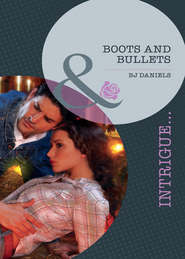По всем вопросам обращайтесь на: info@litportal.ru
(©) 2003-2025.
✖
Outlaw's Honor
Настройки чтения
Размер шрифта
Высота строк
Поля
What made Ely’s claim more terrifying was what was hidden underground in the back pasture of the Cahill Ranch. The alleged abduction had taken place near one of the more than two hundred missile silos that sat in the middle of farm and ranch land across Montana. Back in the late 1950s, Flint’s grandfather had signed over a two-acre plot of land in the middle of his ranch to the US government in perpetuity for national defense.
The US Air Force buried a thousand Minuteman missiles three stories deep in ranch land just like theirs. A missile, which was on constant alert and capable of delivering a 1.2 megaton nuclear warhead to a target in thirty minutes, was still buried in their backyard. The program was called MAD, mutually assured destruction.
On the night Ely claimed he was abducted by aliens, the Air Force reported seeing a UFO hovering over several of the missile silos—including the one on the Cahill Ranch. Suddenly the missiles began to shut down, going off alert. It caused a panic with the military but no one had known about it until years later when the information was declassified.
A few months ago Ely had sworn something was going on at the missile silo.
“Maybe I’ll swing by Dad’s place later after work,” Darby said.
Lillie saw that her brother was purposely trying to change the subject. Did he really think he could distract her that easily? “So this Mariah Ayers you hired, what is she like?”
“She’s...” He seemed at a loss for words for a moment. “You’ll see for yourself. She’s coming in tomorrow to fill out the paperwork.”
“Where is she from?” Lillie asked.
“I didn’t ask.”
“Well, you must have asked about her other jobs.”
“Actually, I didn’t. I had her make me a drink. A mojito.”
“You don’t drink.”
“It wasn’t for me,” he said, turning to look at her with impatience. “I wanted to see if she was as good as she said she was. She was.”
“Hmm,” Lillie said, still eyeing him suspiciously. This wasn’t like him. He was the one who asked a lot of questions when hiring anyone. So what was different this time? “I can’t wait to meet her.”
CHAPTER THREE (#u28eb3891-9601-5919-b88d-41a19934752e)
MAGGIE THOMPSON RAKED her fingers through the teenager’s long hair, looking for a spot she might have missed before picking up her scissors again.
The girl wasn’t paying any attention. She was on her phone texting and had been since she’d walked in the door. Next to her at the only other chair in the shop, Daisy Caulfield, her other stylist, was visiting with a regular, Irma Tinsley.
Maggie drew out each side of the teen’s hair, eyeballing the lengths colored a bright pink. Last week it was purple. Before that, green.
She’d begun cutting her friends’ hair at the age of eleven. Now at thirty-three, sometimes she felt as if she could do it in her sleep. She snipped a little more before putting down her scissors and picking up her blow dryer.
“Don’t need to dry it,” Astoria “Tori” Clark said, already slipping out of the chair before Maggie could turn on the blow dryer. “I’ve got to go. My mom called with the credit card number, right?” she said over her shoulder.
“She did,” Maggie said, but not before the girl was gone.
“There a fire somewhere?” Daisy asked from the next chair, where Irma was getting foil pulled out from her highlights.
“I don’t understand this new generation,” the elderly Irma said. “Did you see her, thumbs just a flying on that phone of hers. What in the world does she have to talk about nonstop?”
Maggie laughed. “It’s the way to communicate now.”
“First they did away with teaching cursive writing in schools,” Irma said. “Next it will be diagramming sentences.”
Daisy laughed. “I think they’ve already done away with that.”
“See what I mean? And you call that communicating?”
As she began to sweep up around her station, Maggie realized that she’d never seen Irma so worked up.
“People don’t talk to each other anymore, let alone write more than a tweet or a text or some fool thing. When I think of the wonderful letters my husband wrote me—” She stopped abruptly as if choking on her words.
Maggie stopped sweeping to look over at the woman. “Irma?”
The elderly woman was in tears. “I’m sorry. It’s just... You probably haven’t heard. My house was broken into. Not much was taken because I don’t keep valuables there. But the letters from my husband...they were in a jeweled box of my grandmother’s.”
“The thieves took it?” Daisy said, stopping pulling foil from the woman’s hair to stare at her in the mirror. Her gaze was full of sympathy. The more Maggie learned about her employee, the more she suspected the young woman was a true romantic.
Irma nodded. “It broke my heart. I would have rather they have taken my mother’s pearls.” She touched the strand at her neck. “But the thieves didn’t even know that the pearls were worth money while the jeweled box will be next to impossible to pawn and the letters only mean something to me.” She shook her head.
“I’m so sorry, Irma,” Maggie and Daisy said almost in unison.
“Oh, the letters aren’t gone exactly,” the elderly woman said, brightening. Irma was one of those people who looked for silver linings. “I’ve read them so many times that I have them memorized. Still, it’s not the same, you know.”
“The sheriff will find out who took them and they’ll be punished,” Daisy said. “Maybe they won’t have gotten rid of the letters.”
Irma smiled up at Daisy and reached back to pat the younger woman’s hand resting on the back of the chair. “Thank you, dear.”
Maggie finished sweeping up as her next client came in. She was glad she didn’t have time to think about Irma’s loss—or Sheriff Flint Cahill. She just hoped Daisy was right and Flint would find the thieves—and the letters.
Even the thought of Flint though made her heart ache. They’d dated for a while and were getting serious when... She shook her head, refusing to even think about what—who—had broken them up because it made her so angry. She’d had a crush on Flint from as far back as she could remember. But then he’d married. Even after his divorce, Maggie hadn’t thought there was any hope that he might notice her. When he did...
It hurt too much to think about. She missed him and couldn’t help but wonder if he ever thought of her, as she greeted her next client.
* * *
FLINT KNELT DOWN next to the footprints in the soft earth outside the window.
“I’d say that’s how the little bastards got in,” Undersheriff Mark Ramirez said behind him. Mark had taken the call and was still angry, Flint could tell.
“You took photos of the shoe prints?” he asked, knowing that his undersheriff would have taken care of it, but still double-checking.
“Nothing distinct about the tracks unfortunately. Looks like new tennis shoes, no unusual wear, hardly any wear at all, actually, on either of the two pairs of shoes. Interesting, but there must be dozens of tennis shoes like them, right? But from the size, I’d say two kids.”
Flint figured the same thing. When the first couple of houses had been broken into, he’d thought it was just kids up to pranks since the only things that were taken were alcohol and junk food.
“Sandra’s sure nothing other than her iPad was taken?” Flint asked.
Mark nodded. “She doesn’t keep money or jewelry in the house. Doesn’t even normally lock her door, but she knew she was going to be gone for the night...”
Flint rose and studied the rough edge of the screen where it had been cut—rather than torn like the second break-in—allowing access into a spare bedroom. “Who all knew she was going to be gone for the night?”
His undersheriff frowned. “I’ll ask her if she mentioned it to anyone. But you know how this town is. Everyone knows everyone else’s business.”











